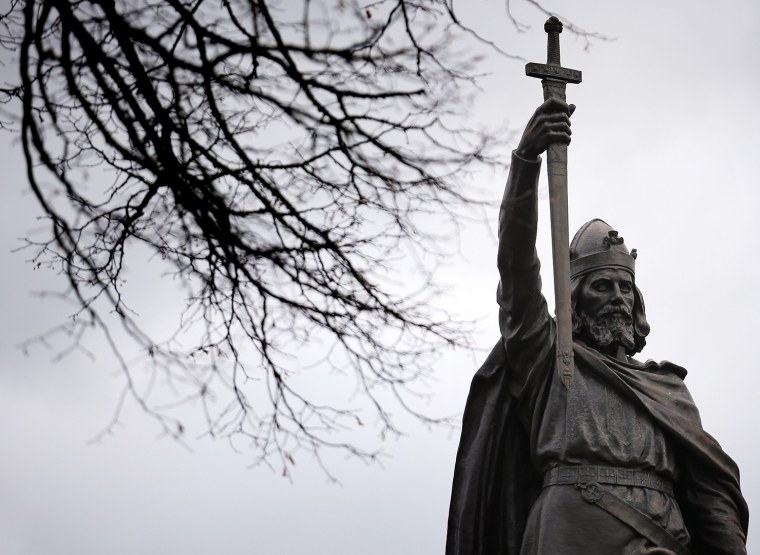LONDON — Only months after archaeologists discovered the missing body of Richard III, researchers are about to test human remains to see if they are those of another king, Alfred the Great, a ninth-century monarch.
Officials have given the go-ahead to analyze bones found in an unmarked grave at a church in Winchester, southwest England, the capital of Alfred's kingdom, to determine if they are those of one of the best-known figures from early English history.
Alfred ruled the Anglo-Saxon kingdom of Wessex, an area which covered much of southern England, from 871 until 899 and was famed for military victories against the Vikings who had invaded much of the north of the country.
The remains were exhumed in March but church permission, known as a faculty, has only now been given to local community group Hyde900, which has been researching Alfred's final resting place, to carry out the tests.
"The Faculty grants permission to carry out scientific investigations on human remains, recovered from St Bartholomew's Church earlier this year, to ascertain whether or not they belong to King Alfred," the Diocese of Winchester said in a statement.
"The remains will stay in the care of the Church and the Consistory Court until they are reinterred."
Hyde900 declined to give any details of what tests would be carried out to confirm if the bones were indeed those of Alfred, citing a confidentiality agreement, and said it would be a number of months before any results would be available.
"We in Hyde900 are delighted that permission has now been given for expert analysis, and we look forward to learning more of the individuals represented by these remains," chairman Steve Marper said in a statement.
British school children know Alfred for a legendary story that, preoccupied with his kingdom's problems following a battle, he burnt some cakes he was supposed to be watching while being sheltered by a peasant woman. Unaware of his identity, the woman scolded him for his laziness.
After his death, his body was moved several times before being laid to rest at Hyde Abbey which fell into disrepair in the 16th century, before it is believed to have ended up in an unmarked grave in St Bartholomew's Church on the same site.
If the remains are those of Alfred, he will be the second monarch whose lost bones have been discovered this year.
In February, a team of archaeologists found the skeleton of Richard III, the last English king to die in battle in 1485, under a car park in the central English city of Leicester.
